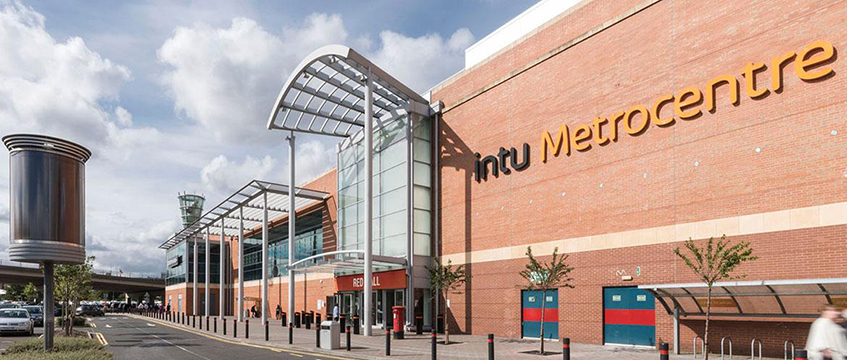Retail leads the decline in property shares
Retail taking a beating reached another level last week, when intu suffered a 40.6% slump in its share price in a single day. Brookfield, Peel and Olayan dropped their bids for the shopping centre investor, leading to the worst day for a current FTSE 350 property company since the financial crisis. In fact, it was the third-sharpest fall since the start of 2008 for a propco or a housebuilder.
But it’s easy to keep kicking retail while it’s down and miss the wider picture: the stock market has not been particularly kind to property this year. How unkind has it been? With only a few weeks left before that magical day, I told Santa that all I wanted for Christmas was a spreadsheet summarising FTSE 350 property and housebuilding shares for the past three years. And he delivered.
Retail taking a beating reached another level last week, when intu suffered a 40.6% slump in its share price in a single day. Brookfield, Peel and Olayan dropped their bids for the shopping centre investor, leading to the worst day for a current FTSE 350 property company since the financial crisis. In fact, it was the third-sharpest fall since the start of 2008 for a propco or a housebuilder.
But it’s easy to keep kicking retail while it’s down and miss the wider picture: the stock market has not been particularly kind to property this year. How unkind has it been? With only a few weeks left before that magical day, I told Santa that all I wanted for Christmas was a spreadsheet summarising FTSE 350 property and housebuilding shares for the past three years. And he delivered.
Long story short, shares in FTSE 350 propcos have fallen 12.2% so far this year – underperforming both the FTSE 100 and FTSE 250.
Unsurprisingly, retail has been hardest hit. Intu (-55.6%), NewRiver (-33%) and Hammerson (-31.3%) are at the bottom of the pack at the time of writing, and it’s unlikely they are going to close the gap any time soon. But, if anything, 2018 shows that steering clear of retail isn’t a guarantee for success, either.
Most companies – from British Land and Landsec to Tritax and LondonMetric – are down this year.
Last week, after Assura posted its half-year results, chief executive Jonathan Murphy told me its market performance was both “disappointing” and “slightly puzzling”. The company had put together plans for its first public bond when it was trading at 57p per share, only to deliver that plan and see it fall to less than 54p. The culprit seemed to be external headwinds. Suddenly, investing in alternatives does not grant anyone immunity from those irritating market jitters.
Winning sectors?
Granted, the clear winners this year – Safestore (+6%), SEGRO (+3.7%) and Unite Group (+2.3%) – do invest in what we have all been conditioned to think of as winning sectors (SEGRO has once again this week overtaken Landsec as the largest listed property company in the UK). Even those sectors, however, are quickly losing steam.
In the past six months, SEGRO’s share price has fallen almost 9%. Compare that with 2017, when SEGRO was up 23%, Safestore was up 32% and Unite was up 20%.
What’s more interesting is that shares in nearly half of FTSE 350 REITs fell more this year than in 2016. That includes the shopping centre REITs but also the likes of Assura and Shaftesbury.
Where the dips in 2016 happened hard and fast, this year has been a steady decline for many. If we pay any attention to the Bank of England’s stress tests – which last week suggested a disorderly Brexit could lead to a fall of 48% in commercial property values – that could go some way in explaining the fear that underpins the market.
Homes getting hammered
As Brexit looms, politicians throw in the towel and just about everyone loses confidence in Theresa May – or anyone else – delivering a deal, it’s the housebuilders that are hurting most. In 2017, during the peaceful lull between 2016’s turmoil and 2018’s follow-up turmoil, housebuilders’ shares rose a whopping 31% (propcos were up 7%). This year, they were down 31%.
To put that into perspective, despite the enormous losses these companies took in the days after the EU referendum, shares among those same housebuilders were down only 18% in 2016.
Clearly, concerns over a disorderly Brexit, its effects on the economy and on people’s buying abilities are putting a much bigger damper on the residential side of the market. The question is: how far away from the worst of the storm are we? Last year offered a bit of respite from the panic, but considering what’s in store between now and 29 March, what we are experiencing now might not even be the full force of the storm.
On second thoughts, maybe asking for that spreadsheet wasn’t the best way to get into the holiday spirit. Merry Christmas?
To send feedback, e-mail karl.tomusk@egi.co.uk or tweet @karltomusk or @estatesgazette











